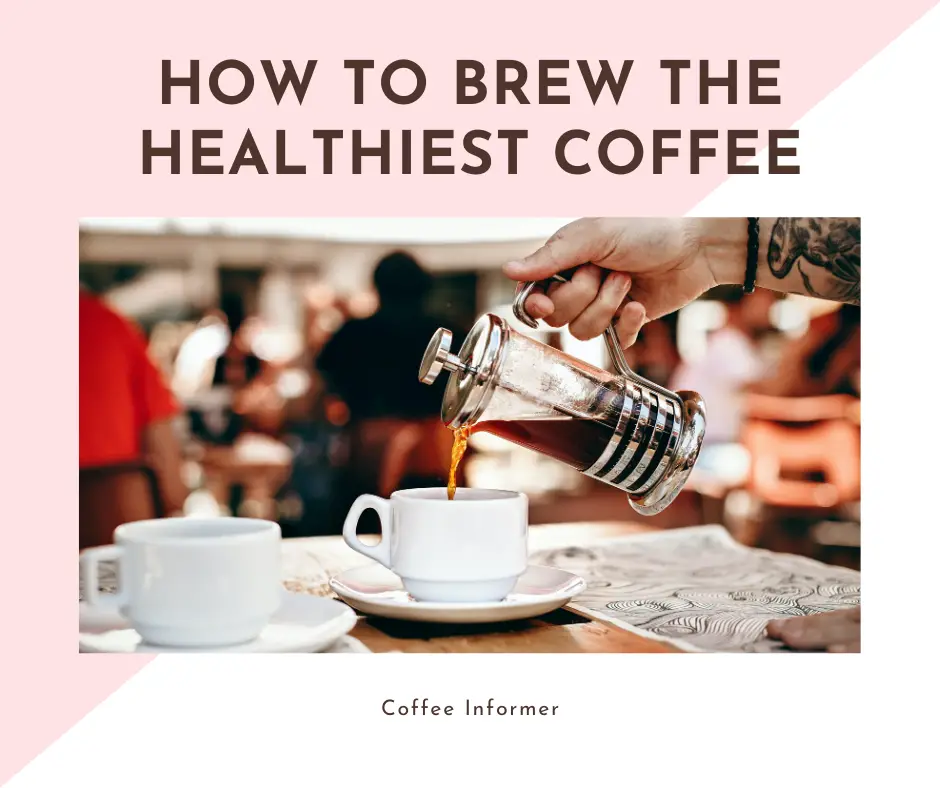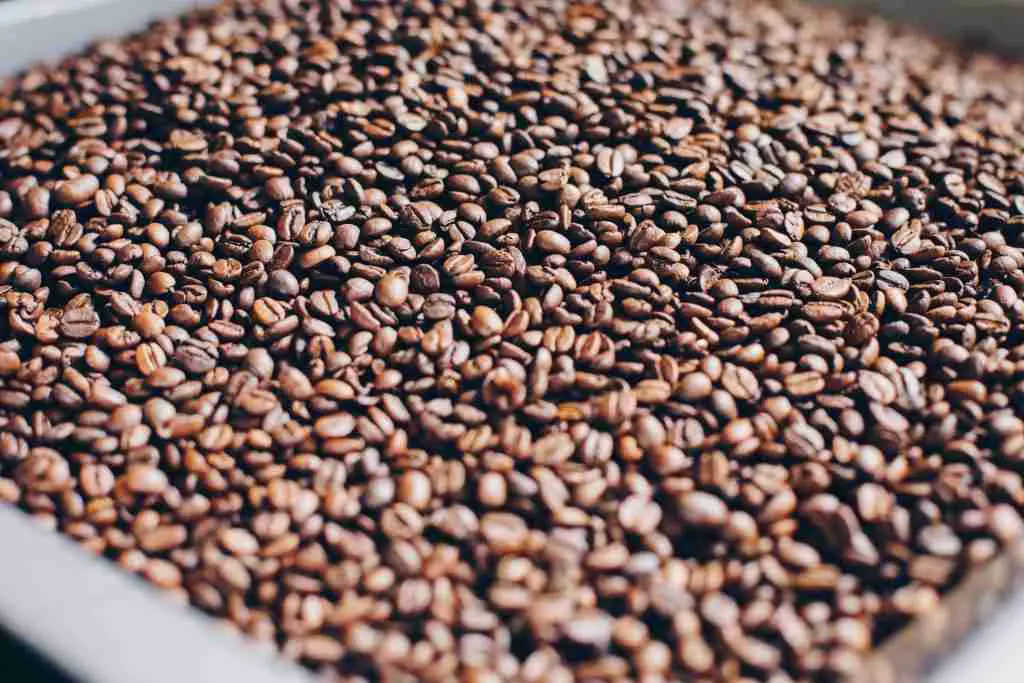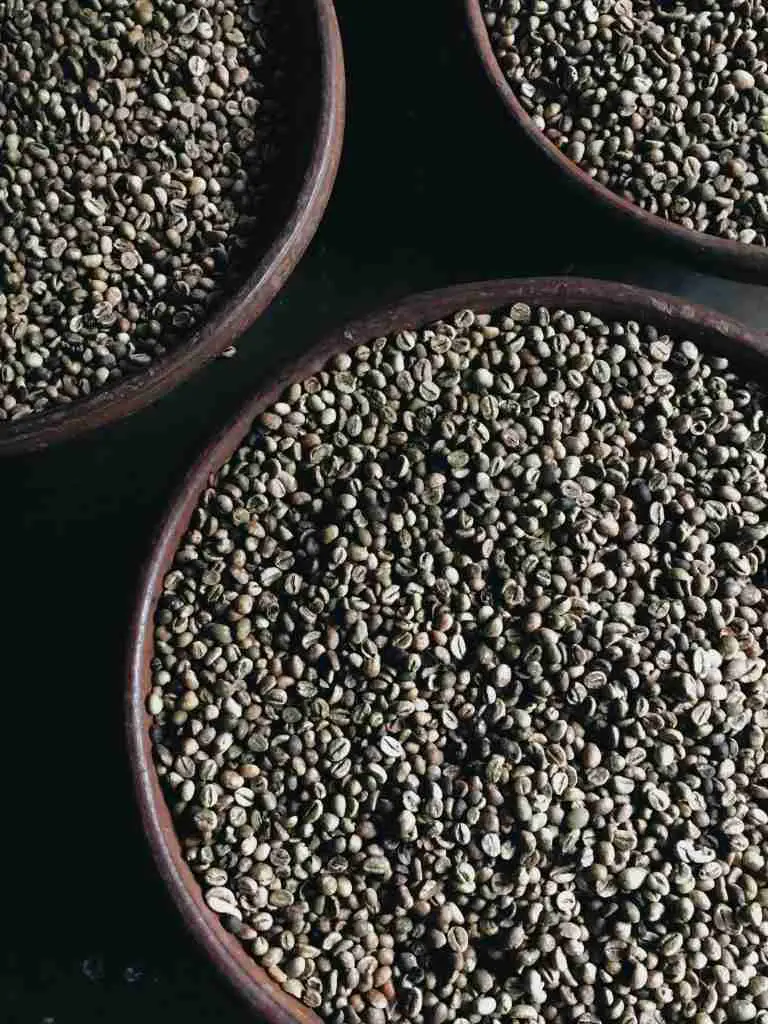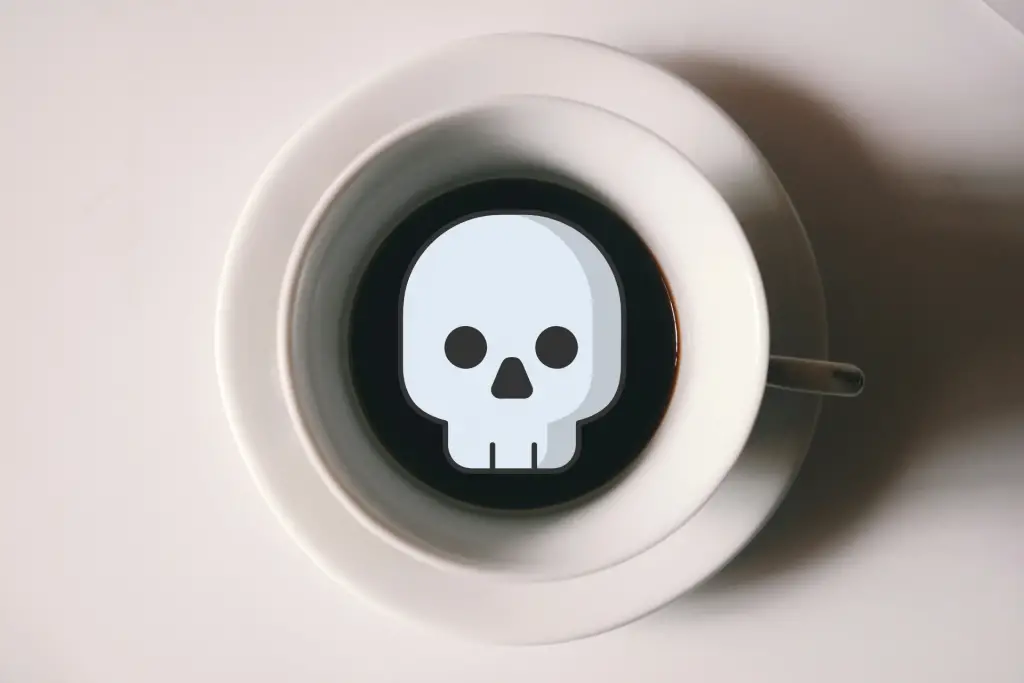
As coffee drinkers have all have heard that drinking 1 – 4 cups of coffee a day is healthy for you. However, a new study has been done showing that there is a healthy way to brew coffee and an unhealthy way.
In this study, it tells us that filtered coffee is MUCH healthier than unfiltered coffee. Unfiltered coffee is linked with raised total cholesterol and “bad” LDL cholesterol. This is due to the lipid raising substances in coffee that can be filtered out with a simple paper filter.
What is the healthiest way to make a fresh cup of coffee?

According to the European Society of Cardiology coffee is linked to a raised cholesterol because of the lipid raising substances that are in a cup of coffee. In an unfiltered cup of coffee, there is 30 times the concentration of these substances compared to a filtered cup of coffee.
These substances are actually oils called diterpenes. They have gotten press for raising overall cholesterol and raising LDL cholesterol.
There have been contrary studies done that showed they are also responsible for many of the health benefits that we get from coffee.
It may be best to stay away from unfiltered coffee if you are suffering from high cholesterol or heart disease.
Coffee pods and standard drip coffee use filters that reduce the levels of diterpenes. Instant coffee contains no diterpenes because of the way it is processed.
The coffees to stay away from if you have high cholesterol is french press and cold brew coffees. Cold-brew retains the most diterpenes because there are no filters involved and the coffee grounds steep in the coffee for long periods of time. In a french press, there is usually a stainless steel mesh that may help in filtering the coffee, but most of the diterpenes still get through and end up in your cup of coffee.
The stainless-steel mesh filter on a French press and the basic open pour-over method allows the coffee’s natural oils to pass, which not only improves flavor but also preserves cancer-fighting polyphenols.
Dave Asprey, Creator of Bulletproof Lattes
With all that information, your best bet for good freshly brewed coffee that is healthy is to go with pour-over coffee. Use an unbleached filter so you have a natural and chemical-free cup of coffee. The filter will also help filter out any diterpenes while retaining all the polyphenols from your coffee. This will give you the flavor and health benefits of coffee without raising your cholesterol.
Beans for a healthier coffee

While the brew method is one factor to consider when trying to brew a healthy coffee, the coffee beans also matter.
Many coffee brands have coffee beans that contain mycotoxins.
More specifically ochratoxin is found in some coffees. This is a chemical belonging to the fungal toxin group known as mycotoxins. It is usually produced by mold and is commonly ingested with our food.
Mycotoxins in coffee beans

This problem is common and more prevalent in the coffee industry than you may think. According to a study done in 1989 at the time of the study, 58% of the beans sample contained mycotoxins. Another study done 6 years later showed 52% of the beans contained mycotoxins. Nothing has changed and coffee beans still to this day contain this deadly toxin in small amounts.
You may think that you are safe because the beans are roasted, but that is not the case. While roasting the coffee beans kills the mold, the toxin remains. Mycotoxins are extremely stable and will only degrade at temperatures over 180 degrees Celsius. Read more about the kinetics of ochratoxin destruction during coffee roasting with the study done by Mariano Ferraz.
Symptoms of mycotoxins
The effects mycotoxins have on human health are adverse. It can be both acute and chronic, with effects ranging from liver cancer, alterations in protein metabolism, gangrene, convulsions, respiratory problems, reduction in immunity, among others. Read more about the effects of mycotoxins on the human body with this study.
There are more specific and lesser known mycotoxins in coffee that are also bad for your body.
Aflatoxin B1 in coffee
This is a well known toxins that causes liver cancer. It is kown as a genotoxic hepatocarcinogen.
The aflatoxin B1 will bind to a segment of DNA and form a DNA adduct which makes cancerous changes to liver cells. It turns your liver cells to a more cancer prone state or even gives you cancer. This is also compounded by other health choices such as a poor diet, lack of exercise, and lack of sleep.
Fumonisin B1 (FB1) in coffee
This toxin had deleterious effects on the brain, in the cerebral cortex. It damages the cells in the brain responsible for memory, attention, perception, awareness, thought, language, and overall consciousness. This can also be called “brain fog” and it is often misdiagnosed as a mental illness. This is a terrifying toxin.
In addition, this toxin interrupts lipid synthesis in the body. Once affected the body becomes imbalanced and has more bad fats that can cause liver cancer, kidney cancer, and heart disease.
Ochratochin A in coffee
This toxin is responsible for dopamine depletion in the brain and brain damage. Dopamine is a chemical that is responsible for stimulating the pleasure centers in your brain. It regulates mood, sleep patterns, learning, motor control, memory, and concentration.
With this toxin you will be experiencing low dopamine and chronic fatigue. You may even mistake this for depression.
T-2 toxin in coffee
Like the last toxins this has a negative effect on the brain. This mycotoxin has a list of symptoms that are caused by alimentary toxic aleukia which is characterized by the symptoms below:
- Diarrhea
- Hemorrhaging
- Leukopenia (susceptibility to infection)
- Nausea
- Skin inflammation
- Vomiting
- DEATH
Macrocyclic trichothecenes in coffee
With this toxin it causes inflammation in the olfactory system and kills important brain cells. Common symptoms of this are disabled cognitive function and chronic rhinosinusitis. This is when you don’t have a proper sense of smell and a stuffy nose.
Cheap, bad coffee is toxic for you

If you’re drinking a cup of coffee and your body is telling you this coffee tastes bad, there a reason for that. It’s probably because you are drinking something toxic to your body. Similar to why we don’t enjoy the taste of bleach.
These toxins are found in all low quality coffee brands and start with the green coffee beans. The cheap green coffee beans are infested with mold and as a result of the mold contain small bits of toxins. Coffee is still one of the largest sources of mycotoxins in the everyday food supply.
Cheaper coffee companies use higher amounts of cheap beans blended with higher quality beans and as a result, have more toxins.
This is why I tend to buy all my coffee beans from single estate coffee roasters so I know exactly who is producing my coffee.
Decaf coffee is also high in mycotoxins because of the lack of caffeine which is a natural anti-insect and anti-fungal. While decaf beans are in storage in warehouses it makes it extremely easy for mold to grow and spread.
Where to get beans without toxins
There will be no way to get coffee beans without any contamination. All coffee beans will have a minuscule amount of mycotoxins.
Our bodies are strong enough to handle a small number of contaminants. So you can rest assured, you will not be poisoned by your coffee.
The best thing to do is to switch from your cheap coffee to a carefully sourced and produced brand of coffee beans. Select an organic coffee this lowers the chances and the amount of mycotoxin in the beans. Choose a coffee bean that is wet-processed and not dry processed. Pick arabica beans over robusta beans if you have a chance. Stay away from blended coffees and stick with single-origin coffee beans. Lastly, do not drink decaffeinated coffee.
How this affects you
If you’ve learned something and decide to get better coffee please comment below and let me know! I can recommend my favorite coffee beans and brewing methods.


What coffee do you recomend
Try my new specialty single origin beans that I just launched!
https://coffeeinformer.com/shop
After getting covid, coffee stinks really badly.. Wonder if now we can smell the mold? Peanuts stink, bread, etc.. all the crops that contain that mycotoxin… interesting….